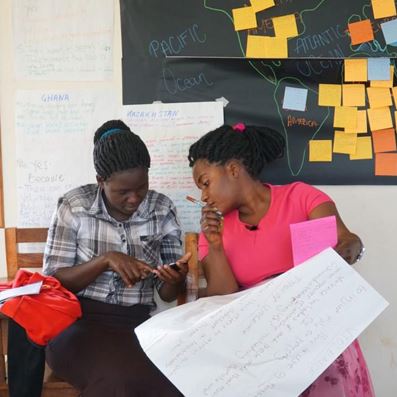ARU was launched in 2006. However, ARU was conceived as part of the URDT strategy for rural transformation in 1987.
What did URDT aspire for?
- ARU as an Institution of Higher Learning to deal with strategic developmental issues that are embedded in the rural communities;
- The villages to act as social laboratories in which participation was a cardinal principle;
- Develop a cyclic relationship between the URDT extension programme (community-based activities using the holistic and women empowerment approach) and the University;
- To draw participants from the Bunyoro region.
The latter proved difficult due to the low level of education in the area. Hence the birth of ARU was preceded by a number of strategic interventions like URDT’s extension services in an integrated and holistic programme. This helped to prepare the staff for a greater role in ARU through the Education for Rural Transformation Programme and document.
ARU – Courses Offered
ARU Mission
The African Rural University for women provides transformational education to create effective change agents within an African development context. ARU applies theoretical learning, innovative instruction, and field practice so that ARU graduates support the creating of conditions for rural people to improve their lives, transform their communities, awaken inherent leadership and increase their capacity for self-generating and sustainable change.
ARU offers a Bachelor of Rural Development and a Certificate Course in Rural Entrepreneurship and Business management (CREB) accredited by the Uganda National Council of Higher Education (NCHE).
From 2017/18, ARU plans to offer an additional Bsc in Technologies for Rural Transformation.
The integrated curriculum trains students in the profession of Rural Transformation Specialists. The course enhances self-discovery, confidence and learning interconnected factors and a variety of technical and soft skills.
For details on our Programmes, Visit our website
Besides academic lecturers, ARU students participate in:
- learning circles which shape their character and leadership skills;
- the URDT community radio;
- the home development projects of the URDT girls’ school;
- the community-driven epicenter programme operating in 16 sub-counties in Kibaale district.
Key competences the students learn are:
- Mastery of the Principles of the Visionary/ Creative Process – shift from being a victim of circumstances to being the creator of the life one truly cherishes;
- Mastery of Systems Thinking – develop competencies to design rural transformation interventions based on an understanding of interrelationships and interplay of forces that cause systemic and systems changes;
- Mastery of Sustainable Development – have a holistic view and sufficient competencies to support community development. They gain skills in; i) action planning based on a shared vision; ii)design and implementation of leverage interventions for lasting change by tapping into human and social capital. Hence they learn building networks and relationships for creating collaborative structures and synergy to generate sustainable incomes, peace, prosperity, health and happiness in rural communities.
- The courses combine theory and practical experiences in sustainable agriculture, appropriate rural technologies, environmental management, community learning, action research, human rights, gender, and entrepreneurship.

